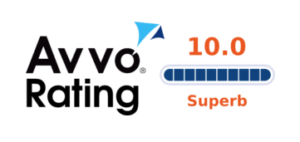



Understanding Hartford Denials
 Navigating the insurance industry’s intricate maze can be daunting, especially when faced with denials from major players like Hartford. Policyholders must be equipped with the necessary knowledge and resources. Our Hartford Denial lawyers are experts in navigating the complexities of the Hartford denial process. We are here to provide you with expert advice and representation, ensuring that you are not alone if you face a denial. With our assistance, obtaining the compensation you deserve becomes a more attainable goal.
Navigating the insurance industry’s intricate maze can be daunting, especially when faced with denials from major players like Hartford. Policyholders must be equipped with the necessary knowledge and resources. Our Hartford Denial lawyers are experts in navigating the complexities of the Hartford denial process. We are here to provide you with expert advice and representation, ensuring that you are not alone if you face a denial. With our assistance, obtaining the compensation you deserve becomes a more attainable goal.
Hartford is a pillar in the insurance industry, offering everything from auto insurance to employee benefits. However, as with many insurance behemoths, denials are a reality. While some denials may be justified, many leave claimants perplexed and seeking clarity and justice.
Common reasons that can lead to a Hartford Denial:
- Not satisfying the policy’s definition of disability: Every policy has its definition of disability. Not aligning with this definition can lead to immediate denial, emphasizing the importance of understanding your policy’s fine print.
- Insufficient evidence or documentation: A mere doctor’s note might not suffice. Comprehensive medical records, consistent documentation over time, and other supporting evidence are crucial to validate a claim.
- Surveillance and social media investigations: In the digital age, your online footprint can be a double-edged sword. Hartford, like many insurers, might monitor your online activities or even employ surveillance to ensure the authenticity of a claim. A simple vacation photo might be misconstrued, leading to complications.
- Consultations with Hartford’s experts: Hartford often relies on its panel of experts for claim evaluations. Their assessments might not always align with your personal physician’s diagnosis, leading to potential denials.
The Appeal Process: A Closer Look
Receiving a Hartford denial isn’t the end of the road. The administrative appeal process offers a beacon of hope. Every denial is accompanied by a letter detailing the reasons and informing the claimant of their right to appeal. This appeal must be filed within 180 days, initiating a review process that lasts 45 days. However, extensions might occur, prolonging the waiting period and amplifying anxiety.
The Importance of Strong Evidence
While the appeal process offers a second chance, its success hinges on the strength of the evidence presented. Relying solely on basic medical records may not be enough. A comprehensive compilation of medical evaluations, consistent documentation, and expert opinions can bolster your appeal.
Vocational experts play a pivotal role in this context. They assess your ability to work in your designated profession or any other occupation, given your medical condition. Their reports can provide invaluable insights, painting a clear picture of your limitations and the challenges you face in the workforce.
Moreover, in today’s digital age, it’s essential to exercise caution online. Social media platforms, while connecting us, can inadvertently jeopardize a claim. A simple post showcasing a moment of joy might be misconstrued as evidence against your disability. It’s crucial to be aware of the digital footprint you leave and its potential implications.
Case Summary: Hartford Reverses Disability Denial
The case involves a registered nurse working in a neonatal intensive care unit (NICU), who was injured in a car accident, hitting her head and developing post-concussion syndrome. This condition led to neurocognitive issues, major depression, and anxiety, severely impacting her ability to perform the high-stakes duties of a NICU nurse, which involve caring for critically ill newborns and making split-second decisions, often during 12-hour shifts. She filed a disability claim with Hartford, which administered both her short-term and long-term disability policies. Hartford approved her short-term disability benefits, paid by her employer, but denied her long-term disability claim during the transition review after a six-month elimination period.
Read Full Case Summary Here...
The case involves a registered nurse working in a neonatal intensive care unit (NICU), who was injured in a car accident, hitting her head and developing post-concussion syndrome. This condition led to neurocognitive issues, major depression, and anxiety, severely impacting her ability to perform the high-stakes duties of a NICU nurse, which involve caring for critically ill newborns and making split-second decisions, often during 12-hour shifts. She filed a disability claim with Hartford, which administered both her short-term and long-term disability policies. Hartford approved her short-term disability benefits, paid by her employer, but denied her long-term disability claim during the transition review after a six-month elimination period.
The denial was based on a review by Hartford’s neuropsychologist, who evaluated the client’s prior neuropsychological testing, conducted within six months of the accident by her neurologist. The testing confirmed neurocognitive issues, but Hartford’s doctor dismissed it, citing a lack of validity testing and asserting that the severity of her condition did not justify continued disability, suggesting she should have recovered by then. The attorneys criticized Hartford for evaluating the claim in a vacuum, focusing solely on whether the client had restrictions or limitations without considering the specific demands of her NICU role.
Hartford’s review process failed to contextualize the client’s cognitive impairments against her job’s requirements, effectively glossing over the critical nature of her duties.
Attorney Stephen Jessup developed a robust appeal strategy to counter the denial. Key steps included:
- Engaging an independent neuropsychologist to review the raw data from the initial neuropsychological testing, conduct additional validity indexing, and compare findings with both the treating doctor’s report and Hartford’s reviewer’s opinion. This review clarified the interplay between cognitive deficits and psychological factors, such as possible PTSD-like symptoms from the accident.
- Obtaining an EEG of the brain, which provided objective evidence supporting the neuropsychological findings and confirming cognitive impairments.
Securing a supportive opinion from the client’s treating neurologist, reinforcing the medical evidence. - Crafting arguments emphasizing the mismatch between Hartford’s assessment and the client’s job demands, highlighting that even minor cognitive issues could be catastrophic in a NICU setting, where precision and quick decision-making are paramount.
The appeal effectively challenged Hartford’s oversimplified evaluation, which ignored the vocational context of the client’s role. By presenting comprehensive medical evidence, including the EEG, independent neuropsychological analysis, and strong doctor support, Jessup demonstrated the client’s ongoing disability. Hartford reversed the denial, reinstating long-term disability benefits, well before the appeal process’s 45-day deadline, indicating the strength of the submitted evidence.
The attorneys underscored the broader issue of insurance companies, like Hartford, evaluating claims without considering the specific occupational duties, a practice that unfairly minimizes the impact of impairments. This case highlights the importance of objective medical evidence, such as EEGs and neuropsychological testing, and the need to tie medical findings to the claimant’s job requirements in ERISA-governed appeals. The victory establishes a baseline for future monitoring, with plans to repeat neuropsychological testing to track the client’s condition, which may persist due to the unpredictable nature of post-concussion syndrome, as seen in cases like professional athletes with long-term brain injuries.
Preparing for a Successful Appeal
Preparation is the cornerstone of a successful appeal. It begins with a thorough understanding of the policy’s definition of disability, ensuring that all documentation aligns with it. Regular consultations with medical professionals can provide a steady stream of evidence, showcasing the progression or consistency of your condition.
Moreover, seeking legal advice early in the process can be a game-changer. Attorneys can offer insights, help gather evidence, and even assist in ensuring that all documentation is in order, maximizing the chances of a favorable outcome.
Informative Insights on Hartford’s Process
Understanding the intricacies of Hartford’s process can significantly influence the outcome of your appeal. Here are some informative insights to consider:
- Claim Review Duration: Hartford typically reviews claims within a specific timeframe. Being aware of these timelines can help you anticipate decisions and prepare for the next steps.
- Documentation Standards: Hartford has stringent standards for the documentation accompanying claims. Familiarizing yourself with these can ensure your claim is not denied due to technicalities or incomplete paperwork.
- Policy Variations: Hartford offers a range of insurance products, each with its nuances. Understanding the specific terms of your policy can provide clarity on what to expect and how to approach potential disputes.
- Historical Data: Over the years, patterns emerge in how Hartford handles claims and the common reasons for denials. Analyzing this data can offer valuable insights into potential pitfalls to avoid and strategies to adopt.
- External Factors: Economic conditions, regulatory changes, and even global events can influence how insurance companies, including Hartford, process and decide on claims. Staying informed about these external factors can provide context to your claim’s handling.
About DarrasLaw
Led by Frank N. Darras, DarrasLaw stands as America’s premier disability law firm, fighting for clients nationwide. Our achievements include:
- Securing nearly $1 billion for wrongfully denied policyholders
- Evaluating over 100,000 disability claims
- Advocating for clients in every state
- Taking on insurance giants like MetLife, Unum, Prudential, The Standard, and hartford
Based in Ontario, California, we combine unmatched expertise with relentless dedication to protect your financial future when insurers like Hartford unfairly deny your benefits. As the nation’s most awarded disability litigation firm, Frank Darras has reviewed, fought, and won more individual and group disability cases than any other attorney in the U.S. Don’t let insurance companies take advantage of you—reach out to DarrasLaw for a free consultation today.
Victory Over Hartford: Winning Benefits for a NICU Nurse
- Our Client’s Story: A dedicated NICU nurse, caring for critically ill newborns, suffered a car accident that left her with post-concussion syndrome, depression, and anxiety, making it impossible to handle her demanding job.
- Hartford’s Unfair Denial: Despite approving short-term disability, Hartford wrongfully denied her long-term benefits, claiming her condition wasn’t severe enough and dismissing her test results while ignoring the intense cognitive demands of NICU nursing.
- How We Won: Attorney Stephen Jessup fought back, using an independent neuropsychologist to validate her condition, securing an EEG for undeniable proof, and highlighting the critical nature of her role, forcing Hartford to reverse their denial and restore her benefits.
If Hartford has denied your disability claim, don’t let them bully you. Contact our experienced disability attorneys at DarrasLaw for a free consultation to fight for the benefits you’re owed.
The Role of Legal Assistance in Hartford Denials
It can be difficult to navigate the maze of insurance claims. This is where our legal knowledge comes in handy. Hartford Denial attorneys bring years of experience, in-depth industry knowledge, and a keen understanding of the complexities involved in Hartford denials.
While it is possible to begin the appeal process on your own, having a legal expert on your side can significantly tip the scales in your favor. Our Hartford disability insurance lawyers will not only walk you through the process but will also ensure that your appeal is complete, leaving no room for error. If you have been denied, contact our attorneys immediately to discuss your case.
Frequently Asked Questions (FAQs)
Does Hartford often deny mental health disability claims?
Yes. Hartford has been known to deny claims for anxiety, depression, PTSD, or other mental health conditions by demanding “objective” evidence (like blood tests or imaging) — which is often unreasonable or impossible.
Can Hartford use a pre-existing medical condition to deny my LTD claim?
Yes. Hartford may apply pre-existing condition exclusions, especially if symptoms, treatment, or diagnosis occurred during a “look-back” period before your policy went into effect. But a court has overturned Hartford’s denial in a case involving multiple sclerosis, finding that the exclusion was applied incorrectly.
What if Hartford terminates my benefits after paying me for a while?
That can happen. Hartford may terminate benefits on periodic reviews, sometimes citing new evaluations, surveillance, or “recovery.” Even when medical evidence strongly supports ongoing disability, Hartford has reversed terminations on appeal with legal help.
Does Hartford consider Social Security Disability (SSD/SSDI) awards when evaluating denials?
Hartford should consider Social Security determinations, but there are cases where they have ignored or minimized SSDI awards in denying or terminating LTD benefits.
Can Hartford surveil me or investigate me when I’m on LTD?
Yes — Hartford has used surveillance, independent medical examinations (IMEs), and employability or vocational assessments to challenge disability claims. These tactics may be used to argue that you are capable of work or exaggerating your limitations.
What kind of standard of review applies if I sue Hartford?
Many Hartford LTD policies include a “discretionary clause,” meaning courts often review Hartford’s denial under an arbitrary and capricious standard. That is a very deferential standard, so it’s crucial to build a very strong administrative record.
What is the time limit to file a lawsuit after Hartford denies my LTD claim?
The time limit depends on your policy. For example, in Heimeshoff v. Hartford, the U.S. Supreme Court enforced the contractual limitation period in Hartford’s plan for filing a claim after a final denial.
How can a lawyer help me after Hartford denies my claim?
An attorney experienced in LTD/ERISA claims can help by:
- Reviewing your policy and denial letter
- Getting your full claim file from Hartford
- Identifying and gathering missing or persuasive medical evidence
- Challenging flawed vocational or medical assessments
- Representing you in appeal or litigation
Is it common for Hartford to reverse denials on appeal?
Yes — there are documented cases where Hartford reversed its denial after a strong appeal. But appeals are time-sensitive and technical, so legal representation can significantly improve your chances.
Disclaimer: This page is for informational purposes only and does not constitute legal advice. Every claim is unique. Prior outcomes do not guarantee future results. For advice specific to your situation, consult with a licensed attorney.






